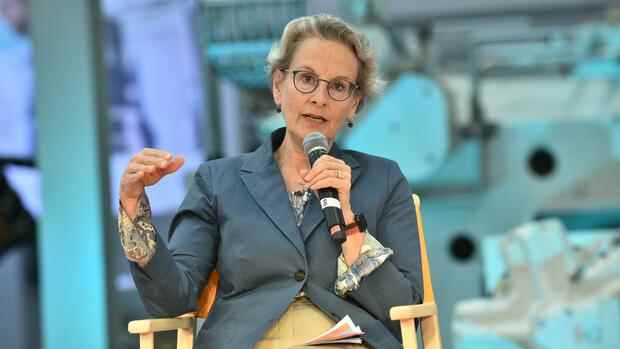At the Innovation Summit, Ursula Staudinger said that the circumstances in many companies still need to be improved, especially for part-time work.
Dusseldorf The German state is increasing the shortage of skilled workers in the economy rather than solving it – because it is reluctant to issue visas to urgently needed workers from abroad. That’s what several business representatives said during the Handelsblatt Innovation Summit on Tuesday.
Ursula Staudinger, Rector of the Technical University of Dresden, called for a better immigration culture in municipal authorities. More “understanding and accommodation” is needed instead of “discrimination and restraint”.
And Magdalena Oehl from the start-up association reported on an Indian employee in IT for whom eight months elapsed between the employment contract and the visa being issued. This is not an isolated case. Internationally, it is “not at all competitive when countries like Estonia and Lithuania do it in ten to 30 days,” criticized Oehl.
The assessments are explosive because the shortage of skilled workers in the German economy is becoming increasingly urgent. 90 percent of start-ups have vacancies. Every third IT job is vacant. And for a long time now, only qualified workers have been sought. The labor crisis affects all sectors and forms of training.
Top jobs of the day
Find the best jobs now and
be notified by email.
In addition to Staudinger and Oehl, Michael Kellner, Parliamentary State Secretary in the Ministry of Economic Affairs, and Handelsblatt Editor-in-Chief Sebastian Matthes discussed these problems on Tuesday.
The increasing shortage of skilled workers in Germany had been foreseeable from the demographic data for decades, said TU Dresden Rector Staudinger. Political answers have been a long time coming, the immigration law of the traffic light coalition is at least a positive signal, but not enough. “We have a huge need for additional immigration,” agreed Michael Kellner from the Ministry of Economic Affairs.
Potential for improvement in the recognition of foreign qualifications
Undersecretary of State Kellner admitted that the procedures in the visa departments had to be accelerated and run more than twice as fast. There is also room for improvement in the recognition of foreign professional qualifications. The attitude of some immigration authorities is also not up to date: Often people don’t think about how the authorities can help the economy and people, but rather “how to be as deterrent as possible,” complained Kellner.
In addition, the participation of women in working life is “still underdeveloped,” said Ursula Staudinger. The circumstances in many companies still need to be improved, especially for part-time work. Working models are needed that make it easier to work about five hours a week.
“Women are a huge potential that we are not yet leveraging,” said Magdalena Oehl at the Innovation Summit.
(Photo: Marc-Steffen Unger for Handelsblatt)
Talentrocket founder Oehl said women are “a huge potential that we are not yet leveraging”. Founding a company often coincides with family planning. The general conditions for parental allowance and maternity leave for the self-employed need to be improved. Then more women would be willing to start their own business.
Due to the aging population, it is also important to enable lifelong learning, said TU Rector Staudinger. “It must be normal for an apprentice to be 50 years old” – and thus possibly significantly younger than the training person. In this way, the shortage of skilled workers in the apprenticeship training sector can be combated.
The discussants agreed that innovations and digitization would tend to increase the shortage of skilled workers in the medium term. After all, working with robots and artificial intelligence still needs more employees who can handle the technology. So modernization did not result in job losses everywhere. Here, Kellner would like to talk about digitization in a way that is more opportunity-oriented than fearful.
More: Catching up with the chips: New Infineon boss calls for more speed with subsidies
